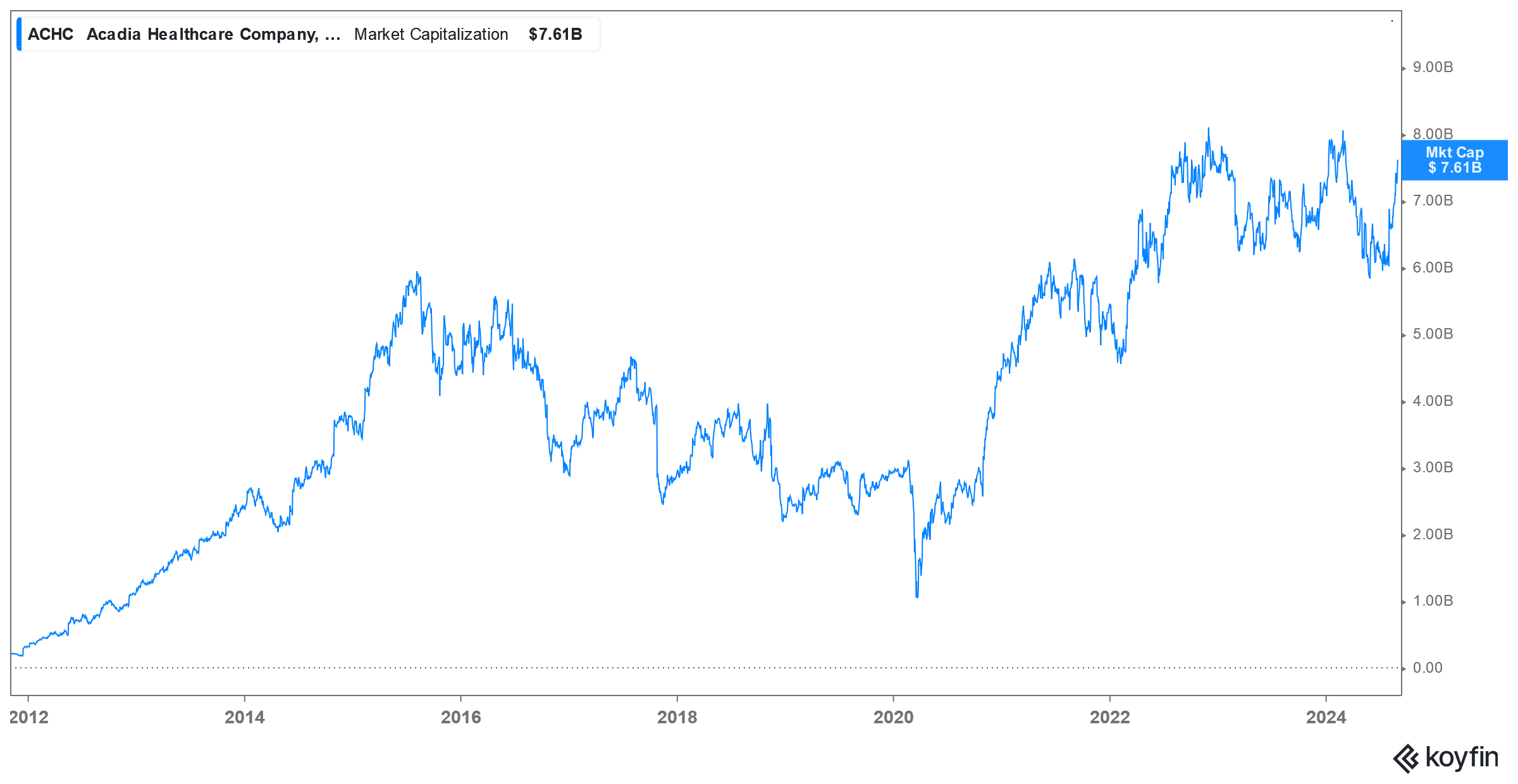The disastrous nature of the US healthcare industry is an open secret. In a bizarre case, a New York Times investigation found that Acadia Healthcare held patients against their will for profit, despite it not being medically necessary. Here’s everything that we know about the case and what it tells us about the state of healthcare in the world’s largest economy.
Acadia Healthcare runs 54 psychiatric hospitals in the US and the report accuses it of detaining patients with mental disorders without their consent – a practice that’s known as “involuntary commitment” in medical parlance.
Involuntary Commitment Is Allowed in Some Cases
To be sure, in some cases, people facing psychological problems might have to be detained against their will for the sake of them and the community. Often, they are held for a few days to help stabilize them and prevent them from harming themselves and others around them.
All 50 US states and the District of Columbia have specific involuntary commitment laws to deal with such cases. However, for a person to be detained against their will, one of the following three conditions should generally be met.
- The person is endorsing homicidal tendencies or shows a desire to harm others
- The person shows suicidal tendencies or shows an inclination to harm themselves
- They look unable to take care of themselves and if left untreated, their life could be threatened
These issues could either be due to mental disorders, alcohol use disorder, or substance misuse. Some states, however, don’t allow for involuntary commitment if the patient is suffering from alcohol use or substance use disorder.
The laws are meant to strike the right balance between protecting the personal liberty of the patient, and safety – both of the patient as well as the public at large. Meanwhile, such detentions are done in good faith to protect the patient as well as the society, and financial conditions don’t – or rather shouldn’t – play a part in such decisions.
Acadia Healthcare, one of the largest chains of psychiatric hospitals in the U.S., is holding people against their will to maximize insurance payouts, a New York Times investigation found. It has detained patients even when it was not medically necessary. https://t.co/Mq9u1mpD4J
— The New York Times (@nytimes) September 1, 2024
However, that’s precisely what was happening at Acadia Healthcare per the New York Times report.
Acadia Healthcare Trapped Patients for Insurance Payouts
The report says 50 former and current employees blame Acadia Healthcare for detaining people for financial reasons.
“It has tweaked medication dosages, then claimed patients needed to stay longer because of the adjustment. And it has argued that patients are not well enough to leave because they did not finish a meal,” says the New York Times report.
The investigation shows that some patients who visited emergency rooms for routine mental checkups were also detained and locked in. According to Lexie Reid, a psychiatric nurse who worked at an Acadia facility in Florida from 2021 to 2022, “We were keeping people who didn’t need to be there.”
Acadia Healthcare charges as much as $2,200 per day to detain some patients and clearly holding them against their consent would have led to a financial windfall for the group that runs one of America’s largest chains of psychiatric hospitals.
Meanwhile, insurance companies could also be complicit in these cases. Citing Acadia employees, the New York Times report said, it used an “array of strategies to persuade insurers to cover longer stays.” The report adds that Acadia held patients until their insurance ran out.
For Profit Hospitals Also Treat Psychiatric Patients
Historically, psychiatric hospitals were the domain of nonprofits and the government. However, the Affordable Care Act mandates that insurers should also cover mental health. While lawmakers may have had all the right intentions in expanding mental health coverage under insurance, that does not seem to be having the desired impact.
In Acadia’s case, we are talking about a large group of hospitals run by a listed company with a market cap of over $7.5 billion. It is a major chain and has over 50 psychiatric hospitals with more than 5,900 beds across the US.

Meanwhile, Acadia has said that the examples quoted by The Times are not representative while refusing to comment on individual cases, citing the “privacy” of patients.
Acadia spokesperson Tim Blair said, “Quality care and medical necessity drives every patient-related decision at Acadia.” He, however, added, “Still, to be clear: Any incident that falls short of our rigorous standards is unacceptable, and actions are taken to address it.”
The US Healthcare Sector Faces Many Problems
The nexus between hospitals and insurance companies, hospitals overcharging patients, and rising healthcare costs are among the key problems that the US healthcare industry is facing.
A recent survey by KFF that was supported by the Robert Wood Johnson Foundation, shows that almost half of US adults find it hard to afford rising healthcare costs, while a quarter of those polled said that either they or a family member faced difficulty in paying for their healthcare costs in the previous 12 months.
Importantly, 25% of the respondents admitted to skipping or postponing health care they needed because of financial reasons.
The report added, “While lower income and uninsured adults are the most likely to report this, those with health insurance and those with higher incomes are not immune to the high cost of medical care.” For example, almost half of Americans who receive a cancer diagnosis exhaust their life savings within just 2 years.
Acadia Has Faced Similar Allegations in the Past
To be sure, this is not the first time that Acadia or the healthcare industry in general has faced such allegations. In one such case in 2022, state inspectors criticized an Acadia hospital in Reading, as it instructed workers to not use adjectives like “calm” and “compliant” in a patient’s chart. Clearly using such words might not have gelled with their involuntary commitment.
In 2022 only, some employees at Acadia hospitals in Ohio and Michigan complained to regulators about doctors writing false statements in patients’ medical charts as these claims justified their stay.
Acadia has faced some even serious charges and earlier this year it had to close its Highland Ridge Hospital in Utah amid multiple reports of rapes and assaults.
Meanwhile, it remains to be seen whether such alleged practices will stop at Acadia after the explosive report. Patients however would have reasons to be skeptical as not much has changed over the years and healthcare is increasingly getting out of bounds for lower and middle-income families.
